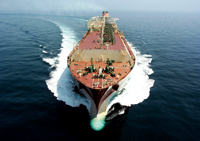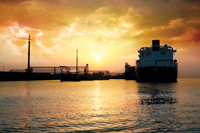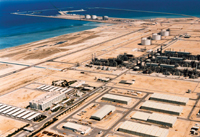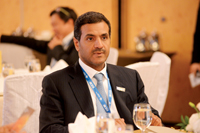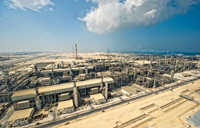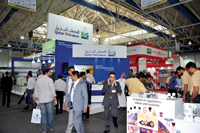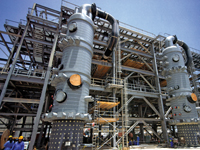
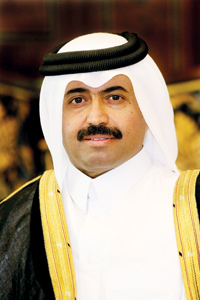 Dr Al Sada ... partnerships ‘are vital’
Dr Al Sada ... partnerships ‘are vital’
THE oil and gas (O&G) industry is the “foundation and primary pillar” of Qatar’s economic and social evelopment, says the Minister of Energy and Industry, Dr Mohamed bin Saleh Al Sada.
“Day by day, Qatari manpower and human resources are reinforcing their position as the driving force behind this development,” Dr Al Sada says in an interview with ExxonMobil Qatar’s Sila magazine.“Pioneering gas development and infrastructure projects like the North Field Alpha project and Ras Laffan Industrial City, which were built and managed directly by Qatar Petroleum, set the foundation for the next generation of projects,” the minister explains.
“Qatar, with abundant North Field gas reserves, is distant from consuming markets of the east and west. The markets of the west were already satisfied with gas from the North Sea, Russia and Algeria. The only way to get our gas to the consuming markets of the east was through the LNG route. Starting with the Qatargas joint venture securing a long-term supply contract to Japan, followed by the RasGas joint venture securing contracts to South Korea and India, the solid foundation for the LNG industry was set,” Dr Al Sada says in the Sila Winter 2013 issue.
As such, an ambitious expansion of the LNG industry in Qatar saw novel and innovative technology that has culminated with the world’s top LNG export capacity of 77 million tonnes per year, with Qatar’s LNG fleet reaching any destination around the globe.
Partnerships are vital, and none has meant more to the region than the partnership between Qatar Petroleum and ExxonMobil.
“I recall it started with Mobil entering the Qatargas 1 joint venture in the early 1990s, followed by RasGas I, which was a direct joint venture between QP and Mobil,” Dr Al Sada says of the partnership’s beginnings.
“Such co-operation mushroomed with the merger of Exxon and Mobil in late 1999 to include Qatargas 2, RasGas II, RasGas 3, Al-Khaleej Gas 1 and 2, and now the Barzan project,” which should be operational in 2014 and ultimately bring total production capacity of the North Field to about 23 billion cubic feet a day.
“The essence of any successful long-term partnership in the oil and gas industry is that it should be mutually beneficial, based on trust, transparency, ethics and intent,” Dr Al Sada says.
“This has characterised the relationship between QP and ExxonMobil since it was initiated with Mobil in the early 1990s.” While QP contributed the huge gas resources of the North Field and enacted legal, fiscal and logistical agreements and facilitations that are conducive to long-term investments by international oil companies (IOCs), ExxonMobil – as the largest publicly traded international oil and gas company in the world – provided innovative technology, marketing strength, management skills, investment and financial capabilities, advanced research facilities, and development programmes.



















































































